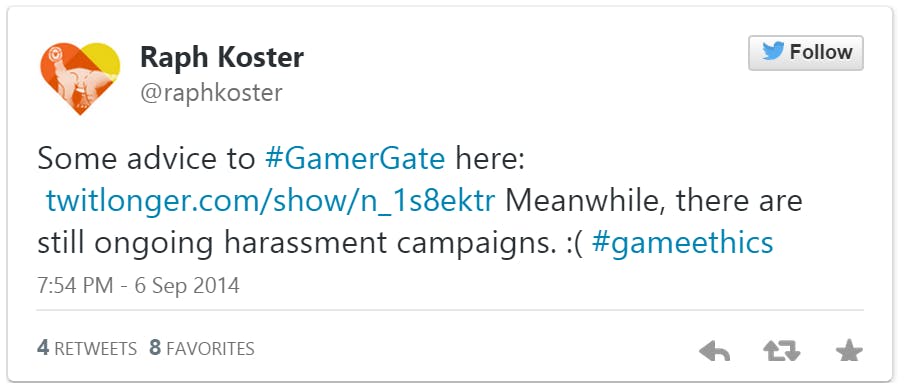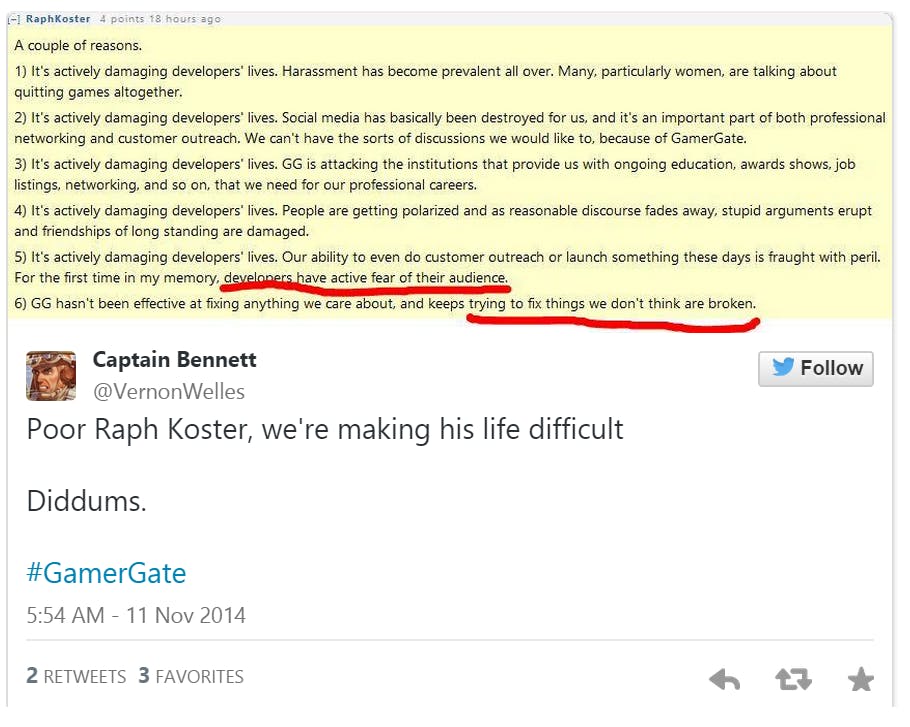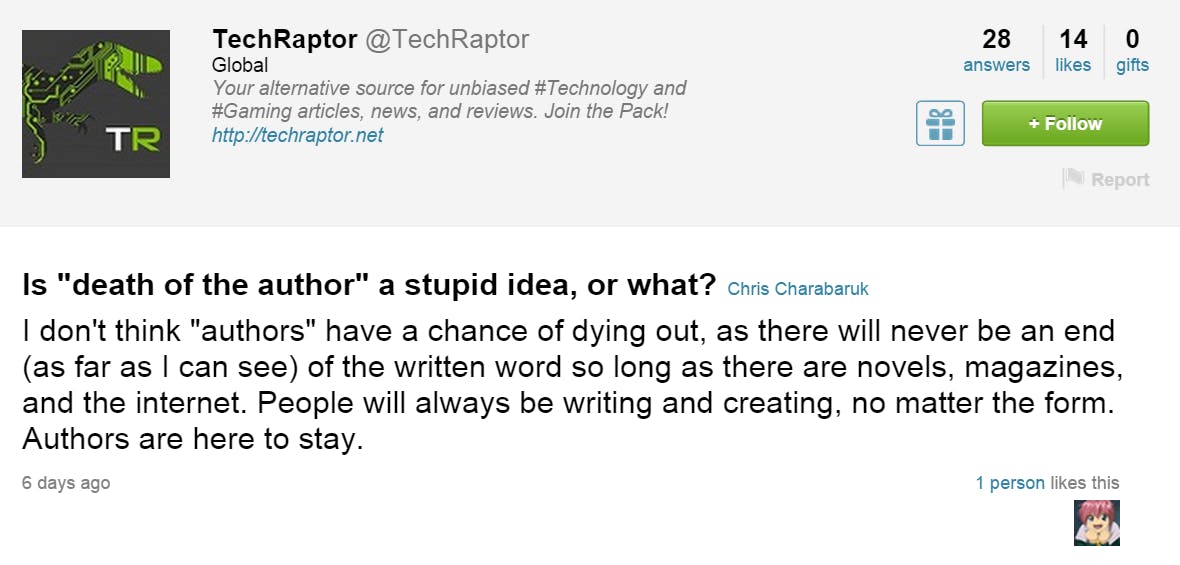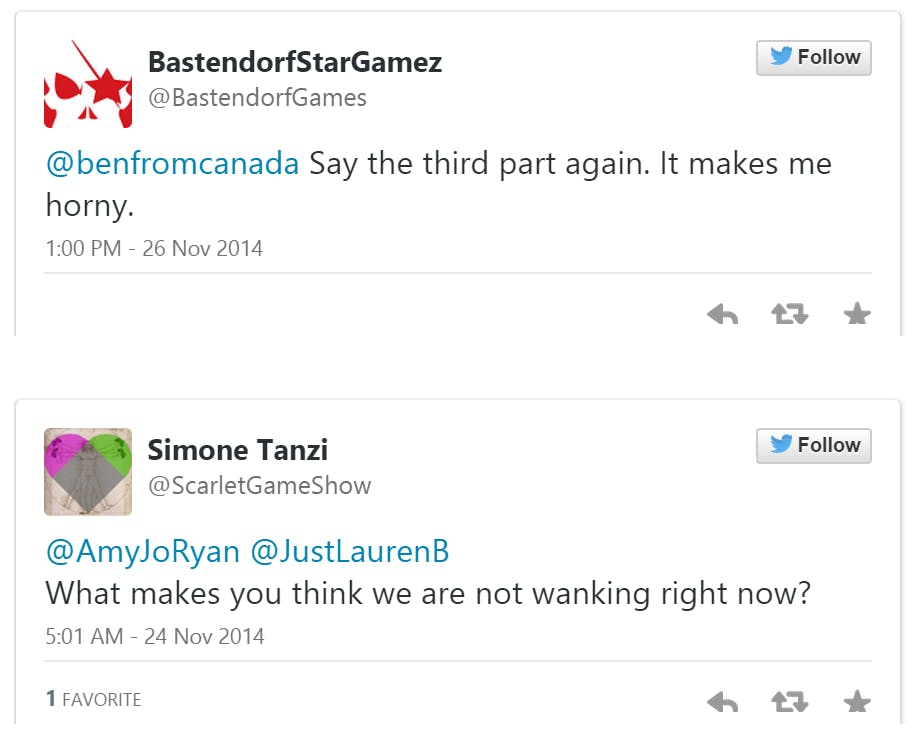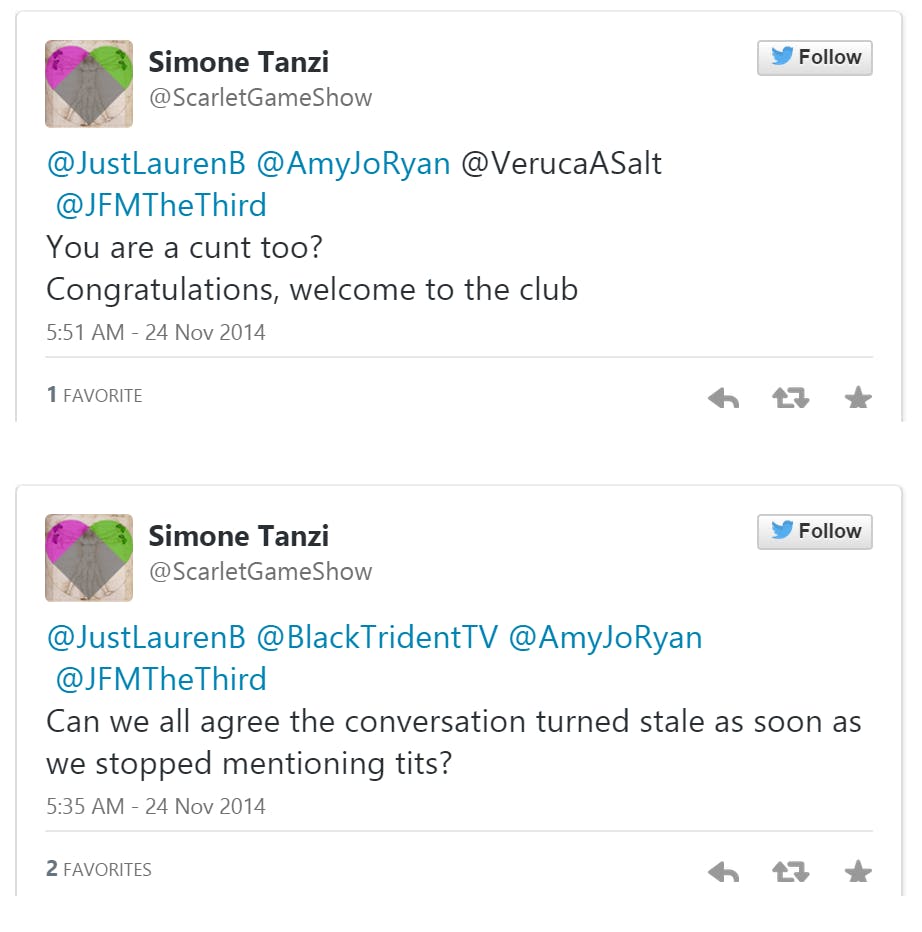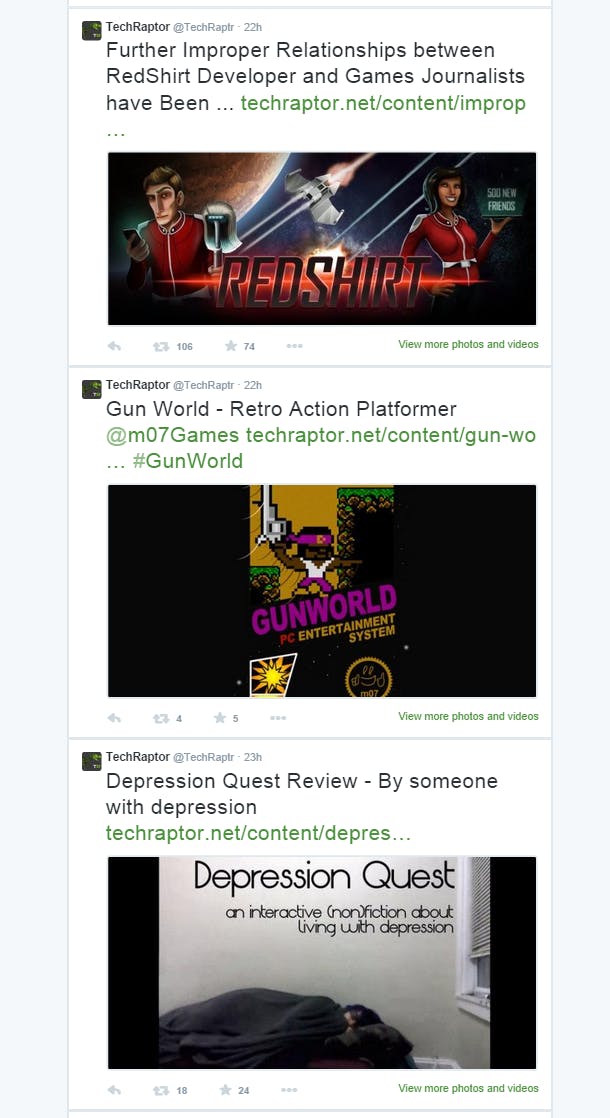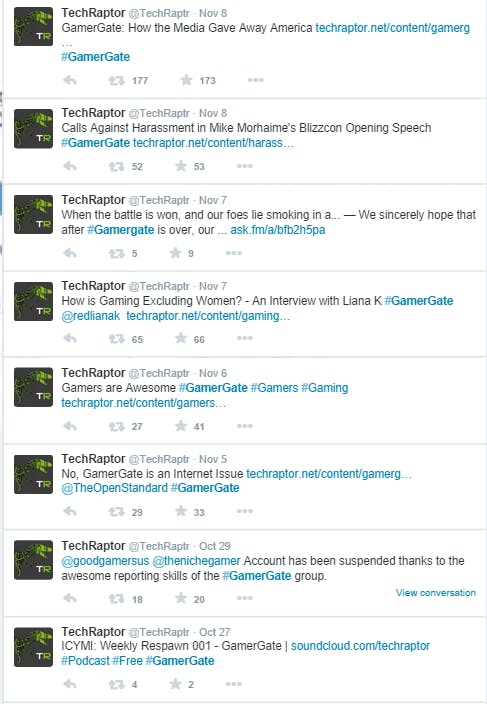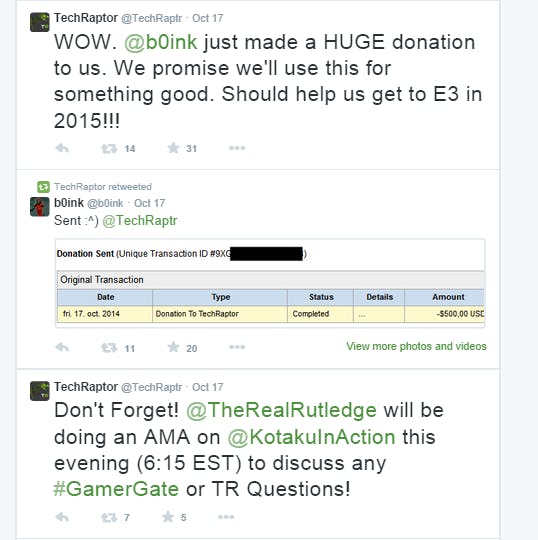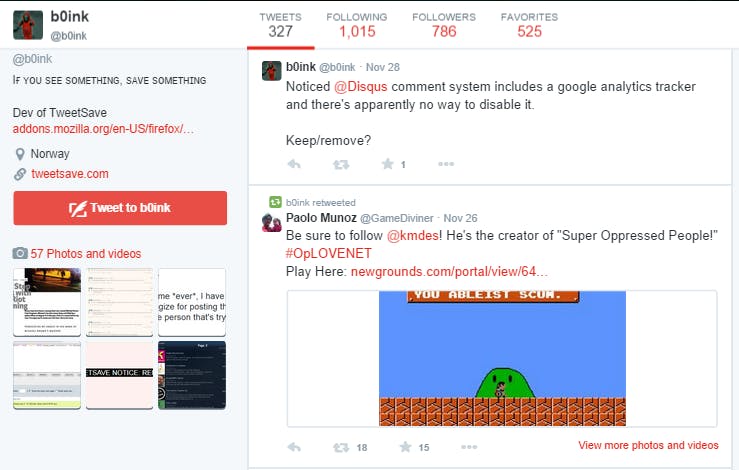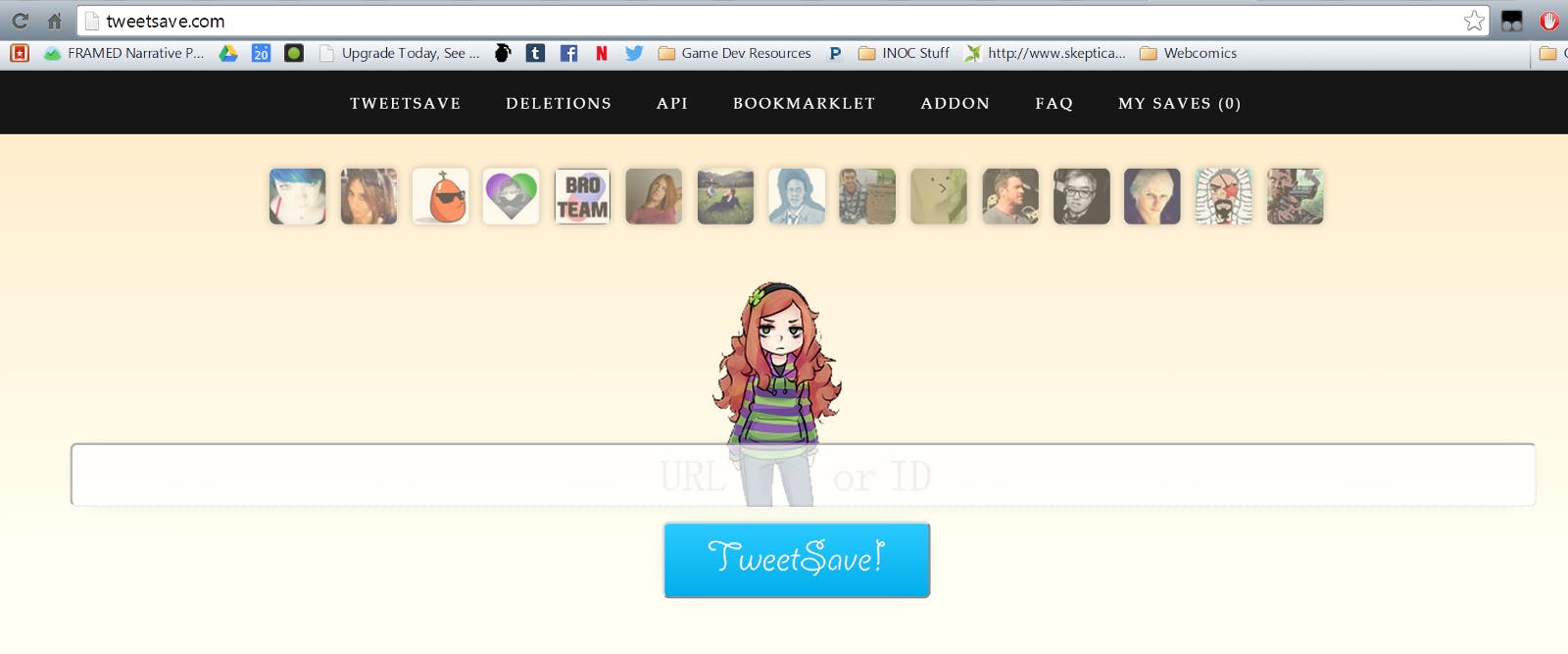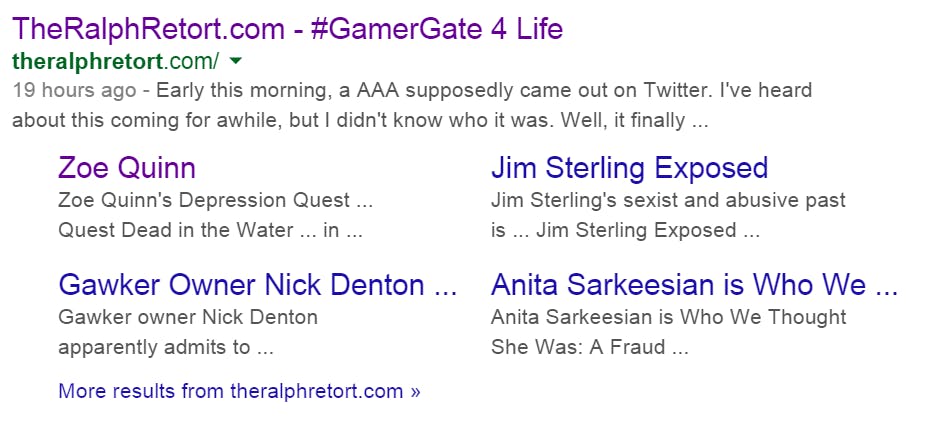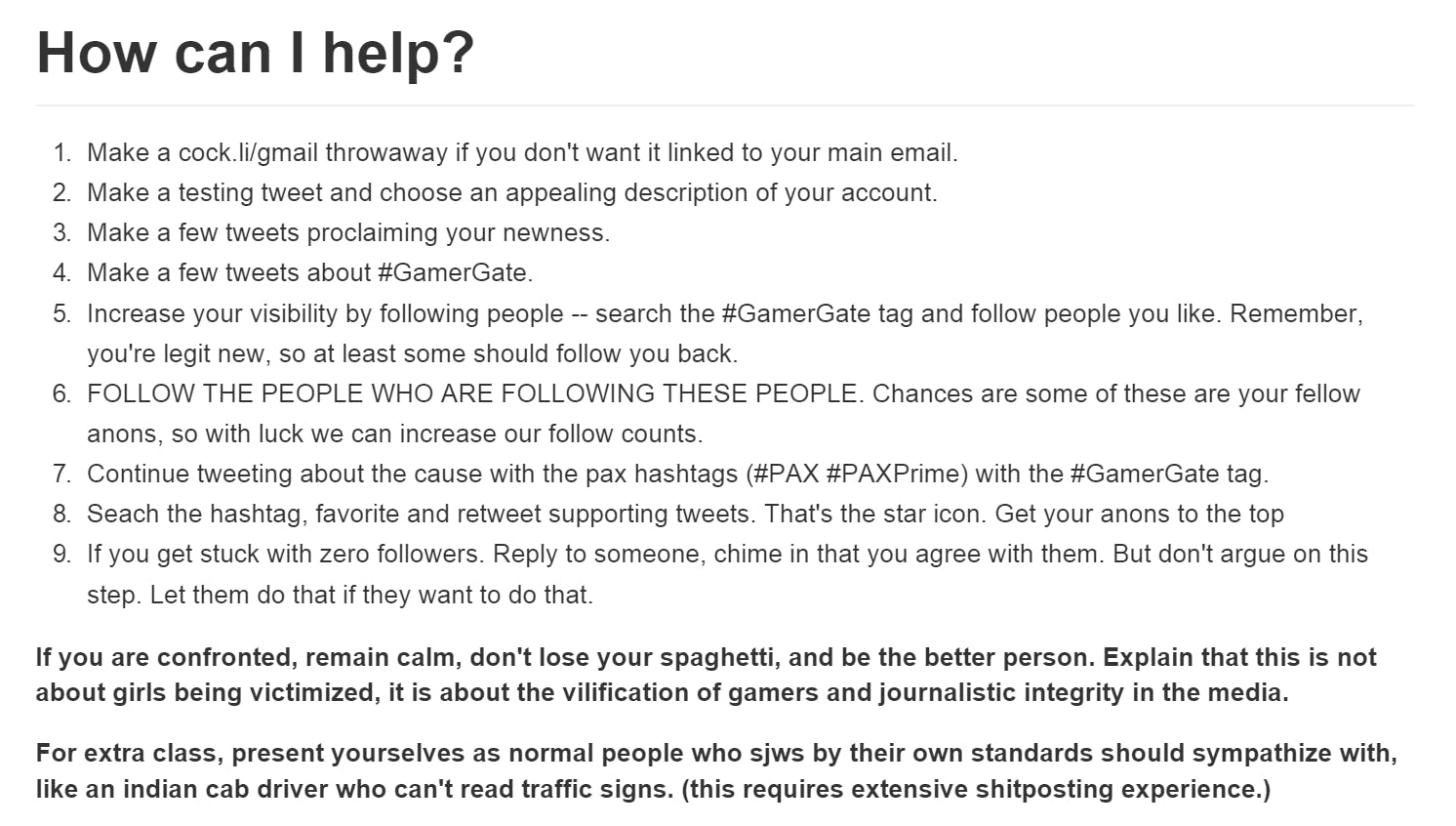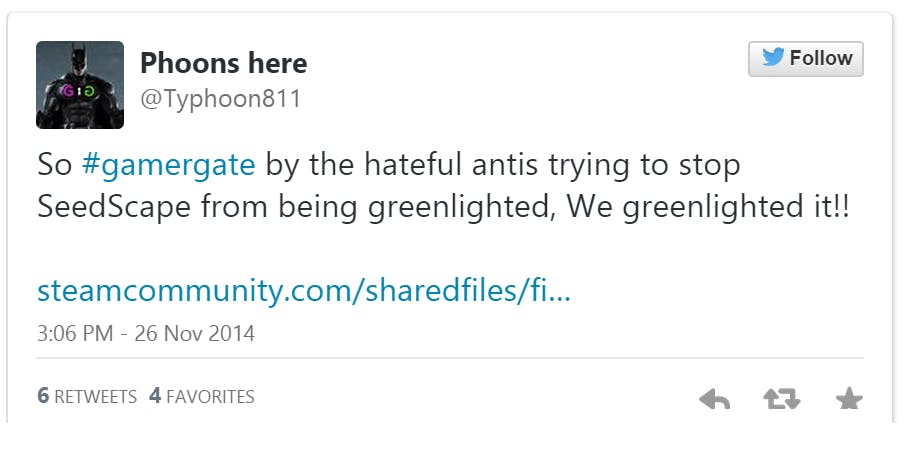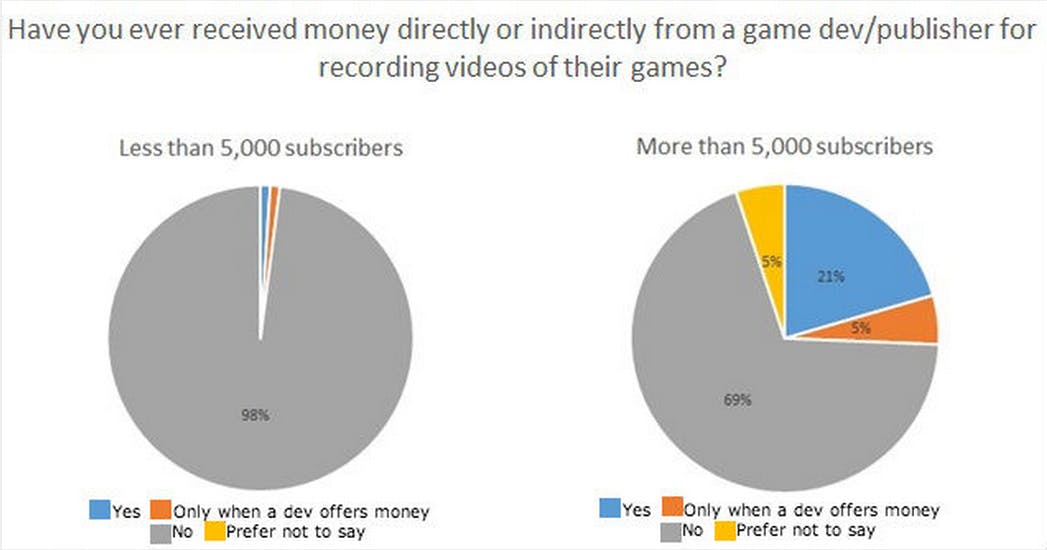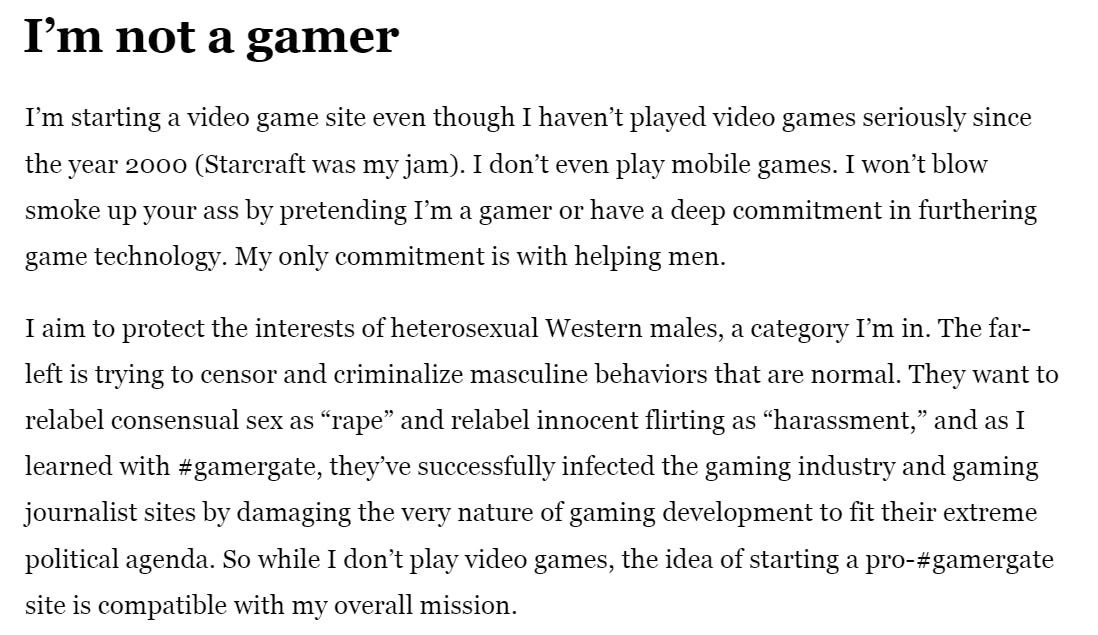Hoo boy, this is a long one.
I used to be a part-time enthusiast press games writer when I was starting to get into making indie games. I had all this leftover excitement from discovering this thing I loved, so sometimes I would write articles on current events in the scene or reviews of games I was excited to uncover until I started making them full time instead. Sometimes I still write one-off articles about these things for places like GiantBomb, Gamasutra, and Kotaku, because I think there’s value in having people from a wide variety of backgrounds writing on our medium and industry—a developer will have a different perspective than an academic, who will have a different perspective from the critic, hardcore enthusiast, journalist, gonzo writer, and so on and so forth. This is great because each perspective brings a new way of thinking and talking about games to the table.
A diverse array of types of writing will fill equally diverse roles, and with each role comes a different set of standards and purposes. For example, a critic has no inherent obligation to be objective since criticism is by nature subjective, but they still have a responsibility to maintain factual accuracy. A gonzo writer covering E3 will largely talk about their own personal experiences as a character in the piece, whereas someone writing previews would likely leave themselves out of it entirely and simply write summaries of the press conferences as quickly as possible. Applying the distance-to-subject standards of a journalist to a gonzo writer would effectively make the gonzo writer’s job impossible to perform, which would suck because some of the most interesting writing on games I’ve seen lately has been gonzo pieces.
By and large, the majority of games journalism (i.e., news and reviews) produced by sheer volume, from what I’ve seen from working in this industry in multiple capacities, seems to be enthusiast press. It’s even commonly used as one of the default paths for a lot of aspiring games journalists who want to get paid to do what they love: to go out and work for a site operated by other enthusiasts or start your own with other passionate people; you get to write about what you care about. The site gets bigger, you start building industry contacts and a body of work, start getting review copies and learning about things like embargoes, build up your press credentials to start obtaining press passes to things, pitch to bigger and bigger sites, and eventually if you work your face off and have a decent portfolio, you start getting paid. If you’re curious, read more about it here.
A cool thing about enthusiast press is the low barrier to entry. Anyone can decide they want to set out on this path and start publishing immediately. A lot of press-facing events have relatively lax requirements for issuing press passes, making it easier for the people who are passionate about writing news about the industry to have access. There are definitely major challenges, but that’s a whole different article.
A worrying thing about enthusiast press is also the low barrier to entry. A lot of entry level enthusiast press sites start without having any idea what they’re doing, largely recruiting from friends, and end up churning out unedited, poorly written pieces and hovering around in prolonged irrelevancy outside of the immediate social networks of the writers as a result. You end up with a decent number of small sites stocked with people who don’t know much about the actual craft of writing churning out mediocre regurgitation of press releases, instead focusing on getting the articles visibility on social media and sites like N4G, with a level of professionalism resembling a “radio station” created with schoolyard friends where you record songs off the radio and talk over them. You end up with people who want to run sites purely to obtain review copies and go to press events. You end up with people who care about being someone who “is in the games industry” more than they care about working in that industry effectively or contributing anything meaningful to it. You end up meeting them sometimes at industry events trying to impress you at the open bar with a clumsy pickup line and a flash of their badge as though you were part of their loyal viewership of five.
Obviously, not all enthusiast press is like that, or even most, but it’s definitely a thing that has been floating around the industry as long as I’ve been a part of it. Hell, I’ve worked for sites like that. My heart goes out to anyone who has to work for people like that as they try to grind out something for a place that actually deserves their time and effort.
Historically this has been relatively harmless and occasionally will even produce good writers who grow out of it and move on to something more worth their time once they figure out what they actually need to be doing. This lack of understanding of the industry hasn’t been terribly harmful outside of sometimes wasting people’s time and the occasional over-inflated ego of the editor-in-chief of Whacky Non-Sequitur Game Site Dot Com.
But then, GamerGate happened. Nerd McCarthyism against perceived outsiders using the vague excuse of “ethics in games journalism” began, fueled by hatred and fundamental misunderstandings of the industry of which they were claiming to be the One True Vanguard. Any time the anonymous keyboard warriors could stop digging through the trash of progressive game industry members looking for “corruption” long enough to post what often contradictory “ethics” concerns they had, even disregarding the anti-progressive rhetoric that more often than not came with it and focusing only on the ethical concerns, it became immediately apparent to anyone in the industry that they had no idea what they were talking about.
Putting the toxicity and hatred that has predominated GamerGate aside for a minute, the other defining trait of it is its blatant, transparent hypocrisy and doublespeak. As Katherine Cross put it in a post for First Person Scholar:
From the beginning it was a concatenation of ironies. They declaimed unethical games journalism with the aid of an unethical journalist; they claimed women and minorities were #notyourshield while using them as a shield against criticism of GamerGate; they excoriated “blacklists” while creating aggressively enforced boycott lists of websites and authors who disagreed with them; they averred their movement had nothing to do with Anita Sarkeesian and Zoe Quinn even as they remained unable to stop talking about them; they promoted a vague notion of ‘inclusion’ while expending great energy claiming that there was nothing wrong whatsoever with gamer culture’s treatment of women.
Which would explain why they’d be willing to support Jack Thompson, a dude who literally tried to take games away and got disbarred over ethical issues.
This has naturally extended to the only remotely credible issue GamerGate has hidden months of harassment behind and used to recruit otherwise well-meaning people—concerns about ethics. The sites endorsed on the GamerGate-maintained Wiki are cited as being worthy for being biased toward the movement.
When the Escapist caved to their demands and revised their ethics policy, they immediately violated their own policy with an article that presented itself as neutral but sourced game developers from GamerGate itself, including one who had been openly calling for criminal activity against developers he didn’t like, and one that had been backed by Alexander Macris, co-founder of the Escapist. Additionally, GamerGate continues to list the Escapist as “one of the good ones” in spite of this, ignoring the fact that, in addition, the Escapist published an article promoting a game owned by co-founder Alexander Macris without disclosure.
Even when industry veterans tried to advise people on how things work to direct the angry mob towards something better than terrorizing people working in the industry they were claiming to save, they reacted like petulant children and mocked his informed advice on how to do something productive.
Combine this with the fact that anyone can set up a WordPress blog with a snarky one-liner about how ethical they are and start calling themselves a games journalist at any time they choose, and now we start running into problems. Sites like the Ralph Retort are springing up exclusively to spread damaging gossip and are widely embraced by a mob that engages in astroturfing, flooding, and other tactics to brigade anything collecting community-provided data to fit their agenda. If they have a readership big enough, would they be granted press credentials without a second thought? Would they be able to go to E3?
Lax requirements for press passes can put the same people who have discussed if they should bring a knife or a gun to the talk of a developer they hate in the same restricted access areas that developer may stick to for safety during game events. Now we have people looking to make careers off becoming the Perez Hilton of video games, and without being more proactive against gossip and harassment masquerading as True Ethics, we risk letting them seem as legitimate as the enthusiast press sites that will be the stomping grounds of some of our next best writers. And personally, I think that one Perez being a shining example of a shitty journalist is more than enough.
At least he got fired for this sort of thing.
Arguably worse are the sites that pretend that they’re aggressively neutral and ethical but are nothing more than GamerGate propaganda sites, spreading the same easily debunked misinformation and talking points, essentially performing rhetoric laundering, and it’s patently transparent if you bother to look. As an industry, we now need to look. We can’t ignore that this is happening on our front lawn and it is dangerous. We need to call out the excuses for harassment, and not allow tabloids hiding behind an ethics non-issue to stand on the same footing as actual enthusiast press sites. We need to be aware, and we need to stop pretending GamerGate has any shred of legitimacy to it. Let’s look right now at one of GamerGate’s examples of the ethics they’re after.
TechRaptor: A Case Study
Let’s start with some background. Techraptor started making kissy faces with GamerGate when it decided to join in on the early harassment campaign against me. They became further entangled once they had server issues, which GamerGate has blamed on censorship despite any confirmation of such. They’re also listed on multiple “GamerGate Approved” lists and are all over the tag. Considering all this, you can more or less guess the content and opinion of the initial articles they wrote that joined in the harassment party.
So, how did that end up working out for them? Let’s examine this integrity and these ethics that they credit their success to, because as we have all heard by now, it’s actually about ethics in games journalism. Who better to do it than the primary subject that they used as a launchpad for success, reaching 10k views a day and climbing from 426 Twitter followers to over 6,000 at time of writing.
Please note that 10,000 monthly uniques was the requirement to get an E3 badge in 2011.
Examining the articles that propelled them to success, not only do they cite an imgur link so hilariously asinine I took it as my new company name, they also host my family’s home address and phone number, use a reddit comment as a single source to publish serious accusations of sabotage, pastebin a competitor’s article to avoid linking to it, and publish articles riddled with basic syntax and grammar errors. They fall into the same category of enthusiast press mentioned before—people writing about games more focused on gaining visibility for their mediocre articles than improving their craft.
None of that even touches on the fact that the articles are presented as fact, but written with such an extreme slant, the italics have leaned so far they have fallen over and become underscores.
The most high profile example of this was Zoe Quinn’s claim that Wizardchan raided and doxed (acquired and revealed personal info) [about] her. That whole affair is best summed up here. Basically, the takeaway from that is that her accusations hold little if any merit at all. What is consistently seen throughout that is how easily she puts herself forward as a victim and asks for consolation from a variety of personalities and sites. Even if you only read the text surrounding the images of her tweets and other communications, you can see this.
Note the encouragement to the reader to ignore any first-hand sources.
To be more fair to them than they ever have been to their subjects, they do have an ethics policy, which contains next to no attempt at unbiased reporting of news events or even attempting to be fair outside of avoiding undefined “conflicts of interest” and making sure they’re not doing paid reviews. Because these are GamerGate® brand ethics—The Society of Professional Journalists ethics code views presenting truth beyond simple matters of payola and minimizing harm to your subjects as priorities, for contrast. The entirety of TechRaptor’s ethics policy reads transparently as a GamerGate talking points memo—explicit concerns about Patreon, developer relations, and payola are addressed, while the only thing having to do with actually investigating their stories is two sad sentences they have already violated multiple times in the articles they made their bank on by rehosting other people’s work and publishing accusations made in a comment thread on social media as fact.
But hey, three months have passed since they decided to use a mob against a developer as a springboard to propel forward the righteous cause of ethical reporting and proper journalistic standards. Let’s see what they’ve been up to just this last week to check in on that.
First up, we have an article about an IGDA “scandal” by a self-proclaimed neutral writer about developers whom she claims were wrongly labeled as harassers and unfairly added to an opt-in Twitter block list by people who didn’t want to talk to them.
Following the recent controversy, where the International Game Developers Association wrongly labeled almost 11,000 people the worst offenders of online harassment, many have spoken out. TechRaptor decided to give a voice to developers to tell their stories.
How did their fact checking go in the “maybe make sure these devs aren’t doing anything untoward before demonizing a major organization in your field” department go? I’ll even be charitable and not include retweets (though there were a lot of nasty retweets on all but one of the developers’ streams).
Oh good, this one has adopted the avatar of the guy who was too extreme for a chat room that talked about how to get me to kill myself:
Okay, well, maybe that’s just a fluke, sometimes mistakes happen. What about the other coverage this week?
Well, there was this muckracking article by the same “neutral” journalist that was so poorly researched it had to have three separate edits to clear up basic fact checking errors. Not only was the developer in question not contacted before allegations of corruption were made against her, but the edits themselves are baffling at best, intentionally misleading at worst.
Down at the bottom in smaller print than the rest of the article is a link to a primary source debunking the article’s accusations. Disclaimers are usually supposed to be posted at the top or made incredibly obvious to provide crucial information before everything it was meant to invalidate or contextualize. Maybe the accusation in the very title of the article should have been edited. Maybe the article should have been taken down and an apology issued for not only printing something misleading, but additionally having not done basic fact checking and not contacting the subject before publishing allegations against her. Instead, the author chose to prioritize a clarification about who was having Thanksgiving with who in the most visible spot before the start of the original article.
Even then it’s worded like a weird accusation. What is the relevance of three co-workers in a similar subsection of industry who come to the conclusion that a significant portion of critics had—that an award winning game was newsworthy or interesting or worthy—eating a meal together without the developer being involved in any way? It’s turkey. It’s not three gamewitches cackling over a cauldron deciding who gets coverage and who will get cursed with boils this harvest. Why am I reading about this in the first place? Why is this so important it’s bolded and the author hopes it’s visible enough but the developer clearing everything up gets shrunk down and hidden at the very end along with another edit?
Mitu had to reach out to this writer to fix her mistakes. PC Gamer had to reach out to this writer to fix her mistakes. How many people have to reach out to do your homework for you when your website aggressively markets how into ethics it is and the very first rule in the Society of Professional Journalists is: “Take responsibility for the accuracy of their work. Verify information before releasing it. Use original sources whenever possible.”
And it doesn’t stop there. An article posted an hour prior to these insufficiently corrected falsehoods was a review of my game that has a special place in my heart as being the most factually inaccurate review I’ve seen, not only about the game but about the subject matter itself.
People who have been affected by depression (like myself and the rest of the dev team) writing about the game is not even remotely uncommon, but again we have a weirdly worded headline that is either awkward and in need of an editor or is attempting to imply something. Reviews are subjective, and I don’t expect a site so entwined with GamerGate to be fair, but the contents of this article quickly devolve into basic factual inaccuracy—the writer goes from talking about the love interest character Alex as though they were the protagonist, accuses the game of mixing up the two friend characters’ genders when “Amanda” and “Attic” are two different people, falsely states that you can’t open up to other people when those are some of the most common choices, states that you can’t seek help when there are multiple options and combinations thereof (therapy, meds, support network, etc), and worryingly, goes on to push medication as the solution to depression. This is downright reckless advice to be throwing out there as medication reactions vary so wildly that sometimes they are only mildly more effective than placebos, and when side effects can be dangerous or lethal, it is reckless for anyone to advocate for medication across the board.
This normally wouldn’t be too big of a deal for an enthusiast press outlet. However, most enthusiast press sites aren’t used as a tool to target and further attack a hate group’s targets while they try to excuse it as collateral damage for the greater cause of the very ethics the enthusiast press site is violating. The hit on Mitu and the sloppy review of Depression Quest also violate TechRaptor’s few policies, again.
For some reason, links to both Redshirt and Depression Quest are absent. However, the very site that was so quick to say that I faked getting raided by the Internet to get my game greenlit was happy to promote the game of a pro-GamerGate developer and include properly attributed links. The writer even bothered to reach out to her.
Compare with TechRaptor’s mishandling of another GamerGate target of abuse, Randi Harper, with the same fact checking mistakes, suddenly being able to dredge up personal information to prove she is a “dubious character” while messing up fact checking and incorrectly calling an opt-in block list for social media a “blacklist.” Compare the handwaving of these mistakes that could potentially affect someone’s livelihood in a serious manner as minor with the hit piece put out on yet another GamerGate target, Nathan Grayson, calling a simple citation error on an article that was still properly attributed “plagarism.” Consider the patently false allegation against a Wikipedia editor who was not tolerant of GamerGate propaganda of being paid to edit when the co-founder of Wikipedia, Jimmy Goddamned Wales himself, said it was over perceived closeness to the subject matter. Consider the writers’ whitewashing of GamerGate’s negative impacts, the fact that they source their information on stories from a reddit board dedicated to GamerGate organization and operations, or that they literally use a picture of GamerGate’s biggest targets as “the opposition” and you may just start thinking they have an agenda to push.
The TechRaptor official Twitter account is not only covered in GamerGate’s retweets and talking points, but promotions for GamerGate developer Brad Wardell’s company Stardock.
Hamfisted, thinly veiled attacks on people targeted by GamerGate labeled “satire” as if the word was an synonym for “psyche!” (with bonus shot at my sex life and the debunked allegations with the classy Five Guys meme reference) appear on a regular basis.
TechRaptor also accepts hundreds of dollars from prominent GamerGaters but doesn’t view constantly slanting articles toward GamerGate, not disclosing it on their website, and attacking their targets as a conflict of interest.
This is who is sending them hundreds of dollars.
Notice whose tweets they’re tracking?
GamerGate-promoted outlets fail at grown-up journalistic ethics, and they also fail at the cheap knockoff brand of GamerGate brand ethics, too. Much like GamerGate’s support of Milo Yiannopoulos using their talking points and attacking their targets despite allegations of corruption and actively hating on gamers right before GamerGate, GamerGate is lying to everyone and itself about what it’s about. Through its actions, the only thing GamerGate continues to be about is viciously attacking people with politics they don’t like. It’s long past time we stop paying lip service to the absurd notion that GamerGate is about ethics that don’t line up with real world expectations, that are built on not understanding the difference between a critic and a journalist, and that they are unwilling to even hold themselves accountable to if it means being able to attack people in the industry they disagree with.
Obviously the industry isn’t perfect and has ethical issues. Ironically, one of the people targeted by GamerGate has laid out some of them quite nicely here. However, GamerGate is addressing none of them and instead wrapped up in running off baseless assumptions of how the industry works and barely hidden agendas against social progressives.
If anything, GamerGate has actually created new ethical problems we need to start trying to solve.
We need to make sure that we are not giving the same affordances to tabloid-esque journalists simply looking to attack our colleagues that we give to enthusiast press sites that behave professionally.
We need to make sure we’re not being duped by campaigns of misinformation and astroturfing pretending to be concerns about something more than petty revenge on specific people, and that we’re not building harmful policy on public pressure that is not only lying to us, but is artificially inflated and as such partially doesn’t exist.
We need to adapt to the fact that widespread vote brigading of community-based reviews and curation and comments sections is now a very real likelihood and create better infrastructure to handle that, especially if it’s dealing with sensitive or controversial work that is more likely to be targeted.
We have to make sure we’re supporting games writers who are not journalists, like gonzo writers, critics, academics, and developers, by not expecting them to adhere to the standards of a field of writing that they do not work in because we fear reprisal from a mob of unruly a-holes screaming “ETHICS.”
We need to discuss what our own standards are for games writing that falls outside of journalism, and support experimental formats and routes of production that may be more tailored to them than the status quo, because the public at large seems to still think that the only games writing that exists are reviews and news.
We have to discuss the standards and expectations of YouTube celebrities’ relation to games, and their impact on and relation to our industry.We have to better inform the PR and Community Managers of the companies that affiliate with us of GamerGate and their use of astroturfing and spamming to use their support as a way to shut down writers whom they disagree with, but have not crossed any lines.
We need to check that the press we work with and support is not a front by hyperconservatives who don’t even care about games to push an agenda of hatred for marginalized people.
We’re at a point where the old ways of doing things are becoming rapidly unfit for the concerns we have to face today. Even without the fartcloud of GamerGate looming over our heads, we should be having this discussion anyway. Because this isn’t about GamerGate—it’s about ethics in games writing.
No, seriously.
This post originally appeared on The Quinnspiracy and has been reprinted with permission.
Photo via Christopher Smith/Flickr (CC BY-ND 2.0)


